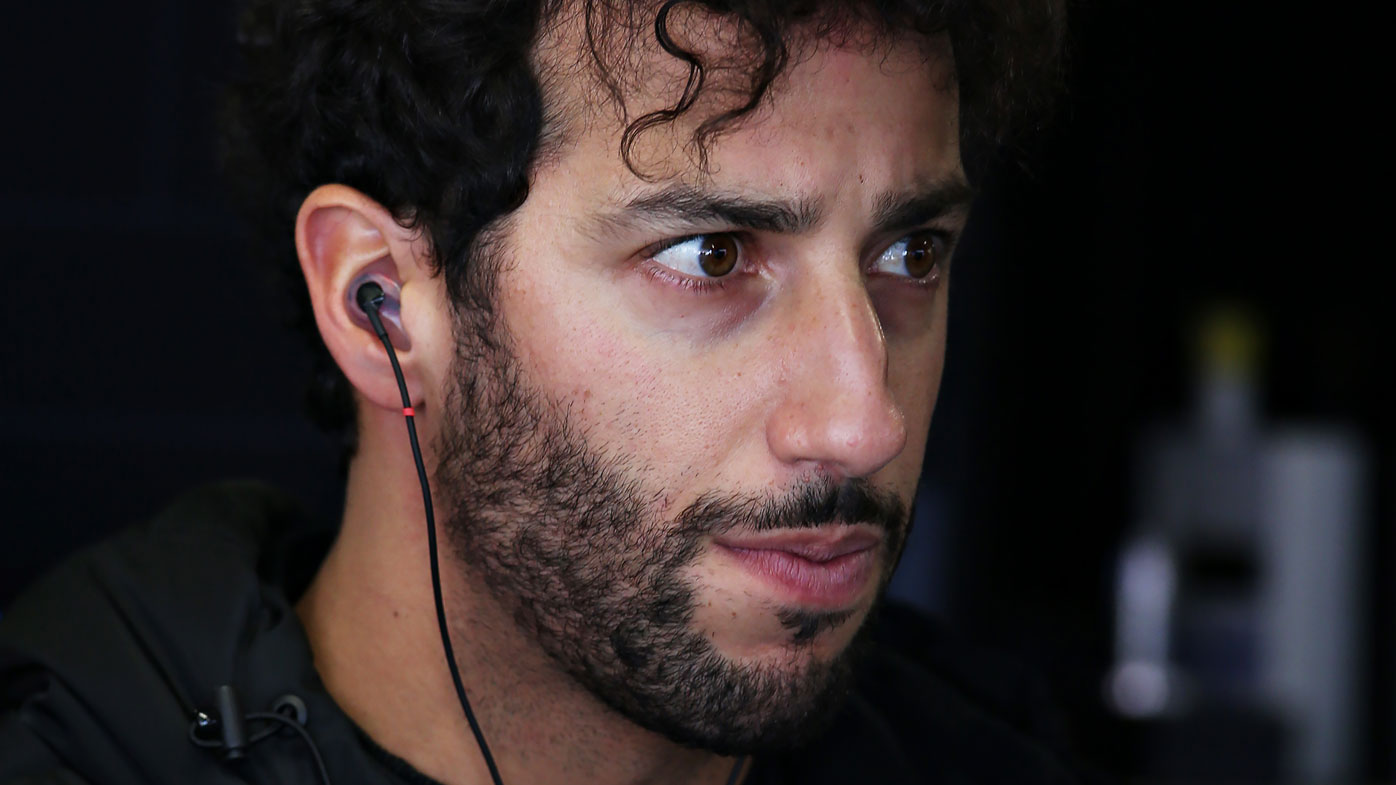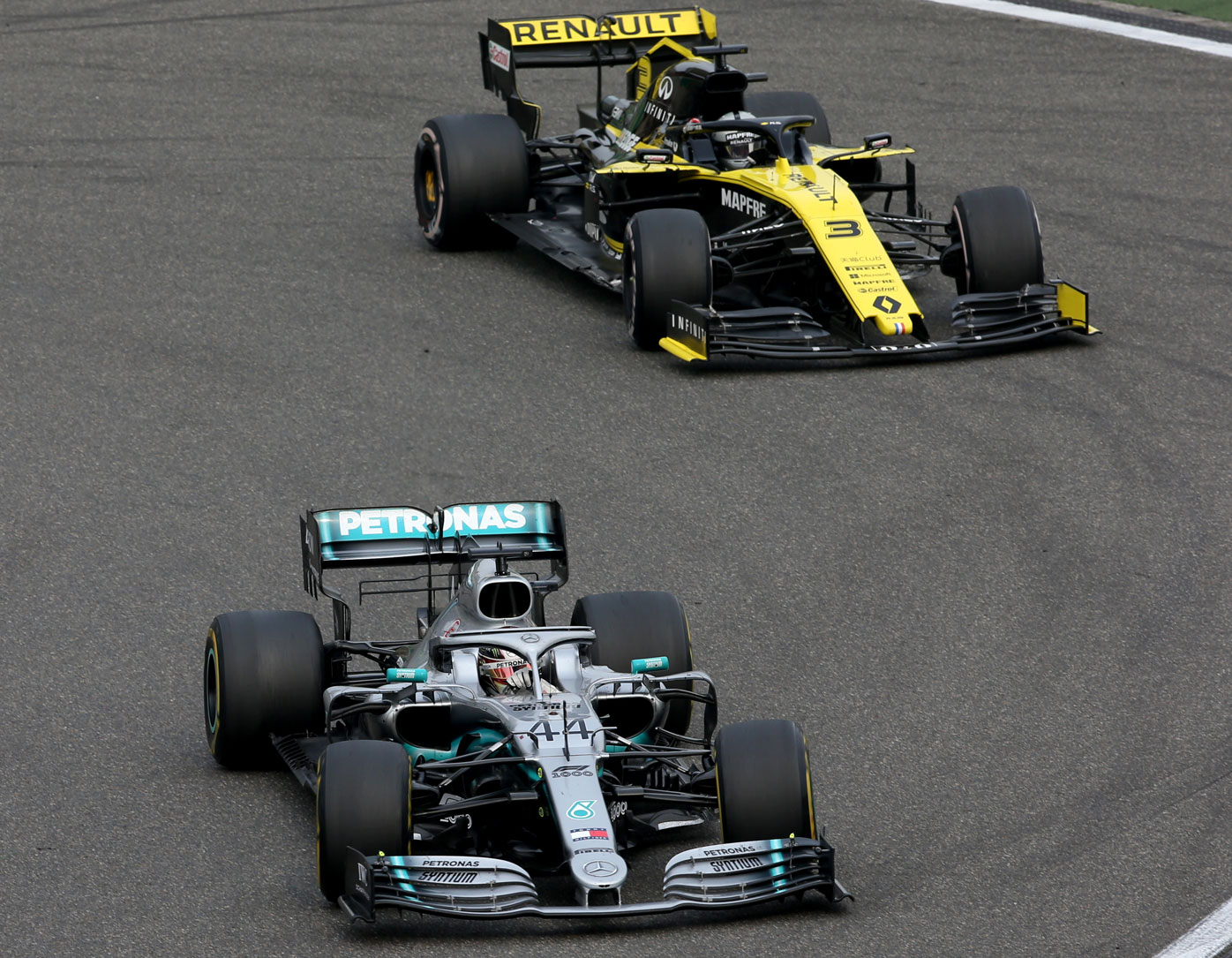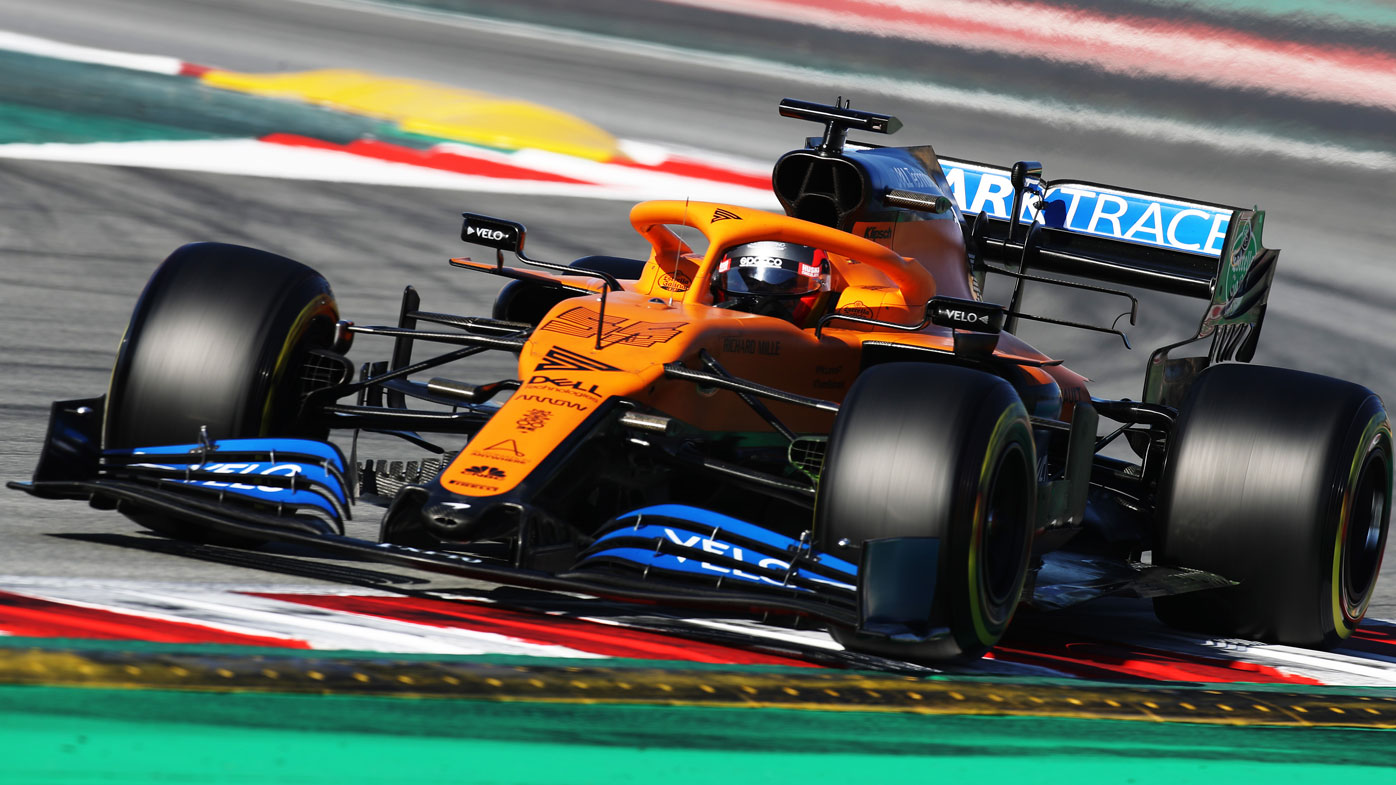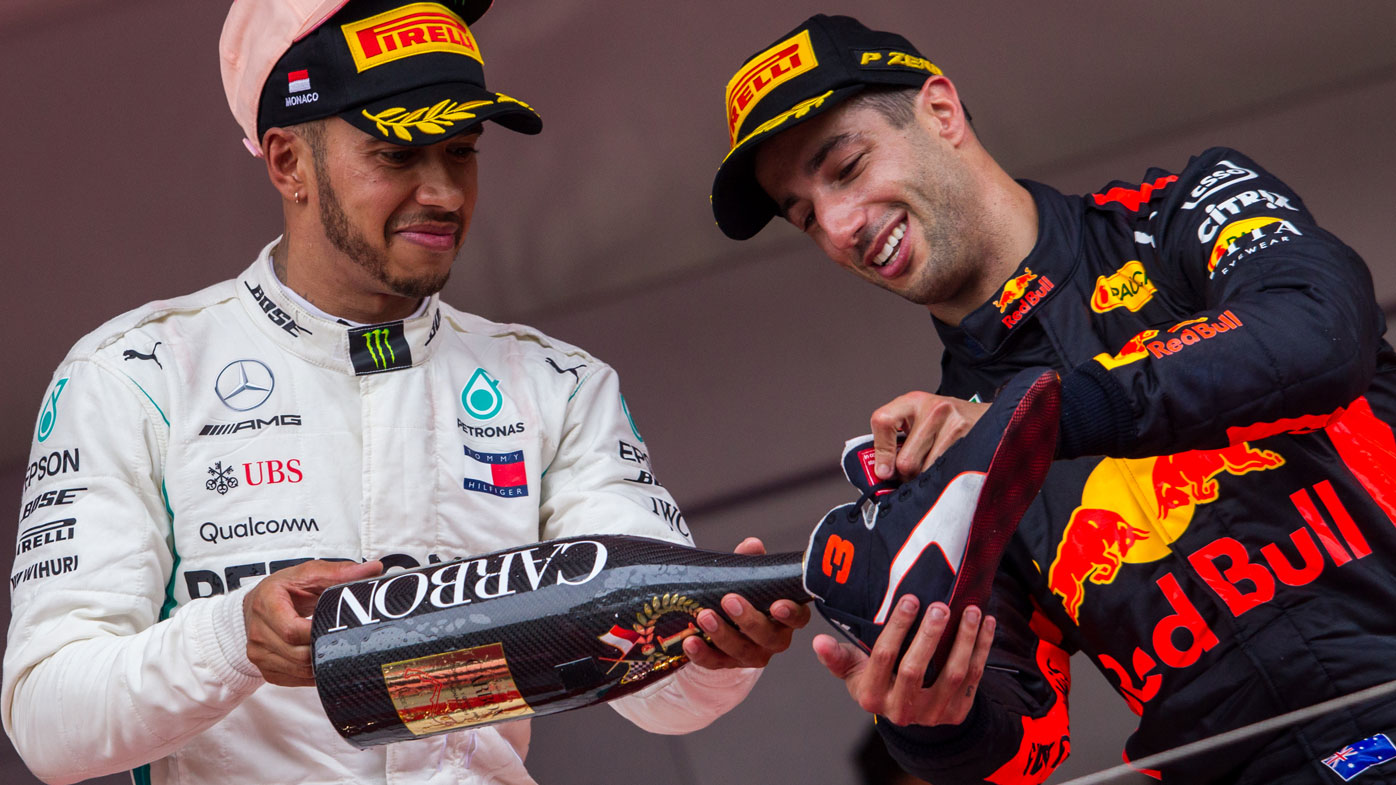Daniel Ricciardo, if reported figures are correct, will take a pay cut of $25 million to get away from his current situation at Renault.
That's $50 million over the two years he's committed to McLaren. If he takes up the option of a third season, $75 million.
It's unclear if his current Renault terms, a reported $42 million per season, would have held in a new contract. The above mathematics are likely over-simplistic and F1 is in cost-cutting mode amid the coronavirus pandemic.
But whatever the precise figure of his sacrifice to join McLaren, for a reported $17 million per season plus incentives, Ricciardo will give up a fortune.
And the move isn't even being made to join a team that can guarantee him contention for grands prix, let alone for the Formula One world championship.
Leaving for a team that is no more certain to give Ricciardo a chance to add to his seven GP wins, for far less money, is a damning indictment on Renault. He clearly felt that he was going nowhere at the French team and was willing to be paid less than half his current salary for even the sniff of something better.

You can't blame him.
Renault told Ricciardo when he signed in 2018 that he was no chance to win in his first season with the team. Ricciardo accepted that upfront honesty, but still found 2019 extremely frustrating, having given up a competitive car at Red Bull. He had three DNFs from the first four races and the Renault car was a rank mid-fielder even when it finished more regularly.
Having been told that Renault hoped to be competitive in 2020, Ricciardo must have been fuming when they again came out before this season and said that the car would remain an also-ran. Two years contracted, two years wasted. The project for which he signed up, elevating a mid-field team to a heavyweight, had failed.
But what is he walking into at McLaren? How different could it be?
McLaren beat Renault to fourth place in the constructors' championship last year, but that's all either team was competing for.
McLaren trailed third-placed Red Bull by a whopping 272 points and winner Mercedes by 594 points. They were 45 points better than Renault, but still on a different planet.
Top driver Carlos Sainz, who beat Ricciardo to Sebastian Vettel's Ferrari seat, scored just one podium; at the season's penultimate race, the Brazilian Grand Prix. Ricciardo had a best finish of fourth for Renault.
The Australian must have felt especially aggrieved to finish just six points clear of his rookie team - Toro Rosso - in the constructors' championship, while McLaren outdid his team running a Renault engine. He finished behind Sainz and Toro Rosso's Pierre Gasly in the drivers' championship, placing ninth for his worst finish in six years.

The struggles of both McLaren and Renault are not confined to the racing circuit. Both outfits are feeling the pinch of the coronavirus pandemic, with sales of their road cars plummeting.
McLaren was recently rejected for a £150 million UK government emergency loan and is still trying to find £250 million in credit, with revenues slumping. It was the first F1 team to furlough staff amid the season shutdown and has been the most outspoken about reducing the sport's spending cap.
Renault was recently approved for a €5 billion bailout from the French government. The future of its F1 team is not entirely certain, given that racing seems such an extravagance when it's being conducted on taxpayer dollars.
Renault has not won a grand prix since 2008. Yet McLaren has fared little better and its once-lofty reputation has faded.
The exit of Sainz from McLaren barely raised an eyebrow, given F1's current pecking order, but its manner was somewhat damning.
Sky Sports F1 expert Ted Kravitz offered a bemused assessment on the reaction of McLaren, which has not won a constructors' championship since 1998, a drivers' championship since 2008 and a race since 2012.
"He was saying (Sainz, in an F1.com interview) about how great (McLaren CEO) Zak Brown and (team principal) Andreas Seidl were about him moving and how supportive they were," Kravitz said in his The Notebook segment.
"Which kind of surprised me. I guess it's the new McLaren, isn't it, it's the new midfield McLaren. You wouldn't have had (former McLaren boss) Ron Dennis being all nice about Kimi Raikkonen going to Ferrari; in fact, I remember he was spitting blood about it, he was very angry about it.
"I suppose that was nice of Zak Brown and Andreas Seidl to be supportive rather than stand in their way. I guess they couldn't stand in Carlos Sainz's way, given that a big team had come in for him."

McLaren are no longer a big team. They haven't been for a long time and are mired in the realities of mid-field.
In the hope of becoming relevant again, in terms of podiums, they were the best move that Ricciardo could have made after faint hopes of a Ferrari drive evaporated. And there are some upsides.
McLaren's agitation for a reduced budget cap has come to fruition. The 2021 cap has been reduced from $US175 million to $US145 million, and the figure will reduce further to $US135 million for 2023-25.
Brown had pushed for as low as $US120 million but at least came away with something that might aid his team's competitiveness. Especially given the impending reunion with Mercedes as an engine supplier, having won two constructors' titles and three drivers' championships in a previous 20-year partnership.
Mercedes is these days focused on its dominant works team, of course, but McLaren should enjoy better fortunes than the turbulent ride they've had with Honda and Renault. McLaren will, though, have to overcome the challenge of working a Mercedes power unit into its 2020 car, designed for the Renault engine.
A technical overhaul of the sport, delayed until 2022 rather than being introduced next season, may also offer something of a reset and give a mid-field team a chance. But is McLaren or Renault best placed to do that?

F1 consensus says that you don't win world championships with customer engines. Renault are at least using their own power unit. And for 2021, they will have the man who masterminded McLaren's impressive 2019 season: veteran engineering director Pat Fry.
While McLaren are demanding lower costs, Renault will in July welcome a new global chief executive - Luca De Meo - who may wish to make his mark by returning the F1 team as a championship force; if such priorities can be justified in the current climate.
Ricciardo would have known much of this when he decided his future. He decided that he could be more competitive at McLaren, but was essentially taking a step sideways for far less money.
That tells you all that you need to know about his dissatisfaction at Renault.
Incredibly, Ricciardo's replacement could be the man who won Renault's pair of constructors' and drivers' world championships back in 2005-06: Fernando Alonso, who missed last season and will turn 40 next year. It is no way to convince anyone that you're not mired in the past, while McLaren will hope that Ricciardo, at 30, still has plenty to offer into the future.
Australian racing fans can only hope they see the famous Ricciardo smile beaming more often with his new team.
from WWOS http://wwos.nine.com.au/motorsport/f1-daniel-ricciardo-renault-problems-pay-cut-to-join-mclaren/a8f1e62d-6001-4929-be7f-6d359f1b7391


0 Comments